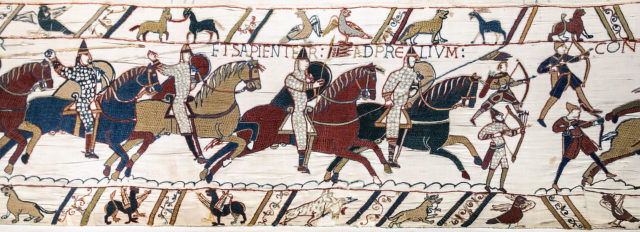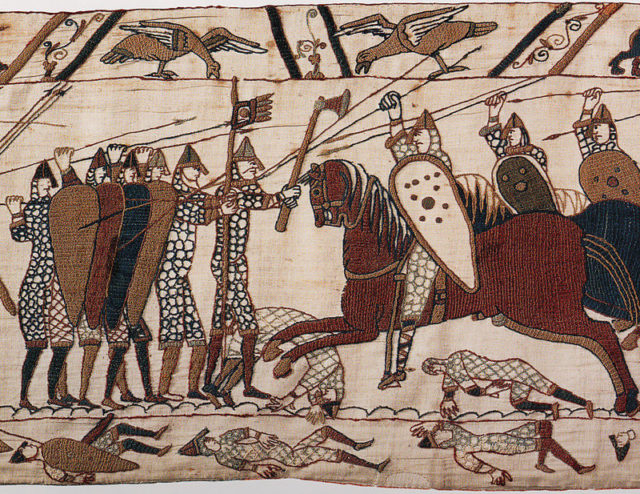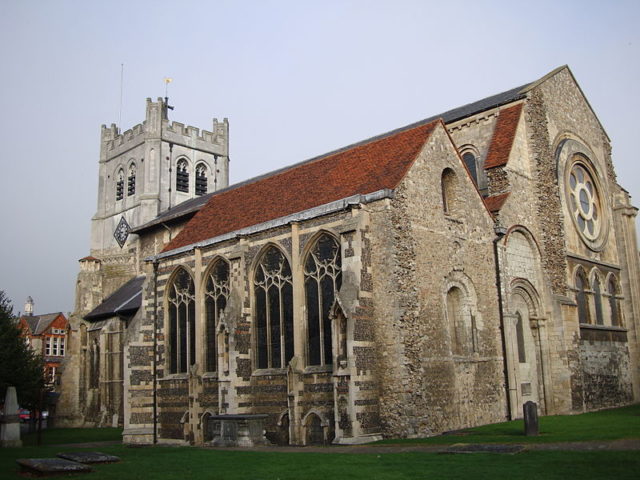King Harold, a relatively obscure 11th century English Monarch, whose legacy, consigned somewhat to oblivion, resides largely in the forgotten annals of history, reigned for only 9 months and 8 days before meeting his death in the Battle of Hastings.
But what if he had lived? Charles West, Reader in Medieval History and Alyxandra Mattison, Doctoral Researcher in Medieval Archaeology, both at the University of Sheffield, discuss how different English history might look if King Harold had survived and reigned victorious.

King Harold, born in 1020 to Godwin, Earl of Wessex, and Gytha of Denmark, ascended to the throne in 1066 upon the death of his brother-in-law, Edward the Confessor. Shortly after, the Viking conqueror Harald Hardrada and King Harold’s own brother, Tostig, invaded the North, only to be met with defeat by King Harold’s army in Fulford near York. His triumph was short-lived: less than a month after Harold’s victory over the Vikings, he received word of a Norman invasion, led by Duke William, and his armies marched south where they clashed with the enemy forces in the immortalized Battle of Hastings.
Despite the Normans’ decisive victory, historians believe that the two armies were somewhat evenly matched and that heavy casualties were inflicted on both sides. If Harold had won, in fact, he may have gone down as one of England’s greatest warriors, alongside Richard Lionheart and Edward I, but the course of England’s history would have changed as well, Mail Online reported.

King Harold was not a blood relative of King Edward the Conqueror, and as such his claim to the throne was weak compared to other members of English royal families, like Edgar II, the grandson of King Edmund II Ironside and a direct descendant of Alfred the Great.
The rivalry between these kings vying for power, compounded by King Harold’s rivalry with his brother Tostig, weakened the position of the monarch and resulted in the political instability that made England susceptible to invasions in the first place. Who knows if, having defeated Duke William in the Battle of Hastings, King Harold would not have met a similar fate squaring off with Edgar, perhaps resulting in a civil war?
In this way, King William benefited from being an outsider with no political ties and was able to rebuild an aristocracy, loyal only to him, from scratch. Ironically, England’s biggest blow may also have been its saving grace.

Furthermore, the ‘Domesday Book,’ the historical record commissioned by William the Conqueror and the single greatest compendium on 11th century England, would never have existed, and without it, much of the information documented would, in all likelihood, be irretrievably lost.
Counterfactual history invites us to imagine what could have been and teaches us to appreciate the world as we know it today, as a product of a combination of outcomes that we can only begin to understand.
